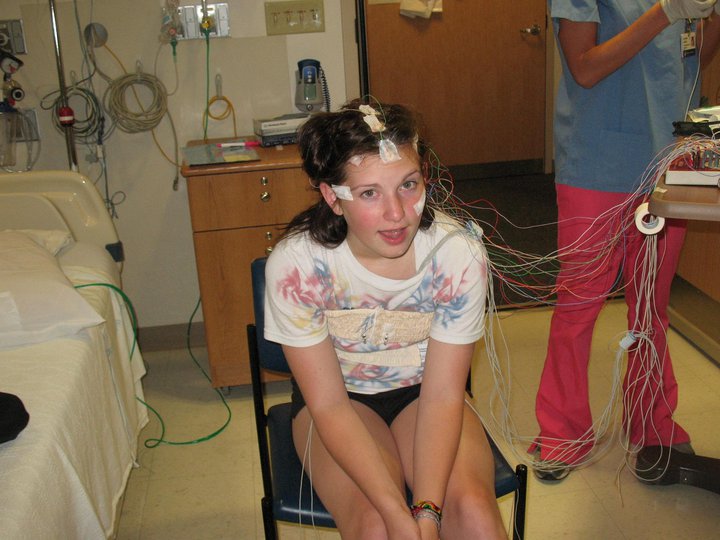This past summer, I was diagnosed with Narcolepsy without Cataplexy, so I know a lot tracking your sleep. Narcolepsy is excessive daytime sleepiness, and sometimes random sleep attacks can happen that are caused by extreme emotion. Since 8th grade I’ve been constantly seeing sleep specialists and have had two overnight sleep studies (wires are fun).

Photo by Emily Chaisson
The sleep specialists all told me the same thing: keep to a regular sleep schedule and to make sure I was getting 8-9 hours of sleep every night. According to Sleepless at Stanford, college students should be getting over eight hours of sleep per night. A recent study from NCBI shows that 50% of college students experience daytime sleepiness, while 70% experience restless sleep. Now I know getting enough sleep may sound difficult when you have late nights studying and weekends going out, but I learned first-hand how beneficial enough sleep can be, and why you should track it.

Photo by Emily Chaisson
Getting enough sleep has a ton benefits like improving memory, increasing creativity, improving your grades, lowering stress, and even living longer.
I’ve honestly noticed that sometimes I have more energy than my friends who don’t have a medical sleeping problem. As a freshman in college, I found balancing my sleep was a lot harder due to the constant social interactions and studying. But as time went on, I became more aware of my body and how tired I was at certain times during the day.

Photo by Emily Chaisson
There are many ways you can track your sleep: a journal, FitBit, a sleep-tracking app on your phone, or just mental memory. Now the phone apps and the wrist bands won’t be able to track your stages of sleep so make sure you’re getting restful sleep. Also, naps are your friend.
Something that works for me is figuring out when I have to wake up the next day, and making sure I get my 8-9 hours of sleep in so that I’m good to go. College allows you to basically pick your schedule, so if you know you aren’t an early riser, then you can make sure your day doesn’t start until after 10 am. This means if you wake up to get ready for class around 8:30 am, or 9:00 am, you don’t really have to go to bed until after midnight.

GIF courtesy of giphy.com
My sleep doctors also always recommended going to bed at the same time every night and waking up the same time every morning. While I know it’s hard to do when on the weekends you like to stay out until 3 am, and your MWF classes might start at 9 while your T/Th don’t start until 11, just try your hardest to keep to a sleep schedule that only varies at most one hour.


